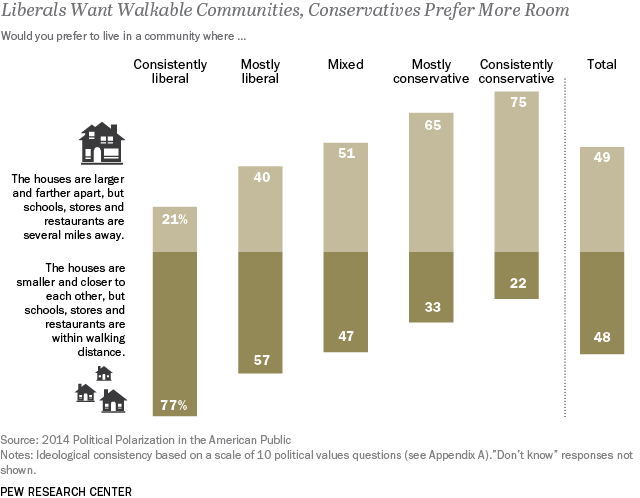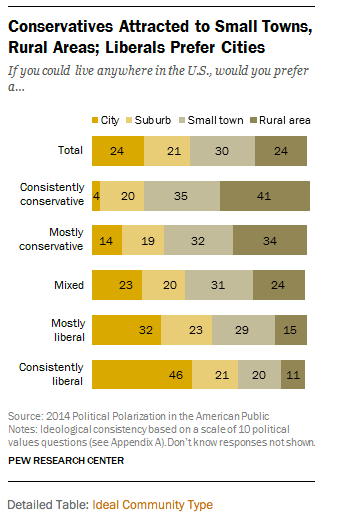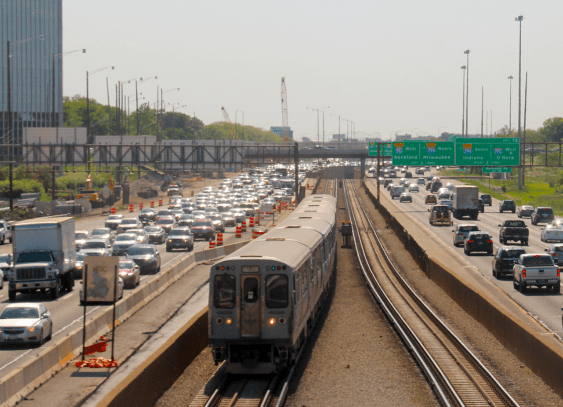Americans are increasingly sorted along ideological lines. There is less diversity of opinion among the people we associate with, in the media we consume, and even where we want to live. That's according to a new report from Pew Research Center studying political polarization in the United States.
Perhaps most interestingly, the report found stark differences in preference for city versus rural living among people from different sides of the political aisle. People identified as the most consistently liberal were far more likely to say they prefer living in walkable place, while the most conservative people overwhelmingly said they preferred to live in a rural area or a small town.
The dynamic reinforces Nate Silver's observation after the 2012 elections: "if a place has sidewalks, it votes Democratic. Otherwise, it votes Republican."
Among those who identified as most conservative, 75 percent reported they'd prefer to live in a place where “the houses are larger and farther apart, but schools, stores and restaurants are several miles away.” Only 22 percent said they're prefer to live in a place where “the houses are smaller and closer to each other, but schools, stores and restaurants are within walking distance.”
The situation was reversed for the most liberal class of respondents. Among this group, 77 percent said they preferred a smaller house, closer to neighborhood amenities. Only 22 percent would opt for the larger, more isolated house, Pew found. The proportions were roughly reversed for conservatives.
Americans overall were roughly evenly split, with 49 percent saying they're prefer the bigger, more remote house, and 48 percent saying they'd prefer the walkable community. Interestingly, both classes of respondents -- conservatives and liberals -- showed little love for the suburbs. Just 21 percent of liberals and 20 percent of conservatives said they would prefer living in the suburbs.
Among the factors that were important to liberals and conservatives in choosing a place to live, there were some consistencies and some inconsistencies. Both liberals and conservatives rated living near extended family and strong schools highly. But access to museums and theaters was particularly important to consistently liberal respondents: 73 percent said these amenities were important to them, compared to just 23 percent of consistent conservatives. Liberals were also more likely than conservatives to say it was important to live in a community with a mix of people from different ethnic and racial backgrounds.







